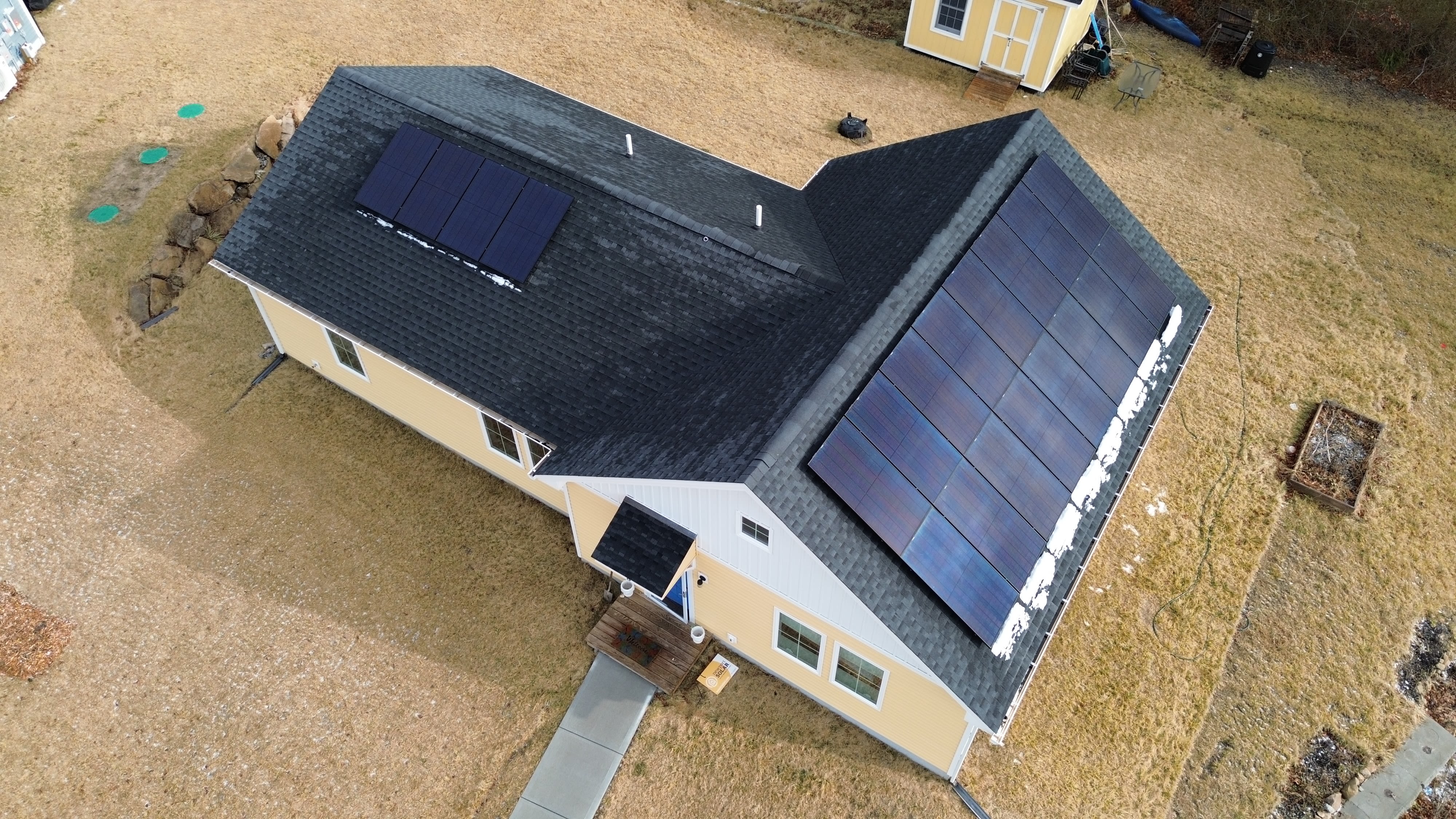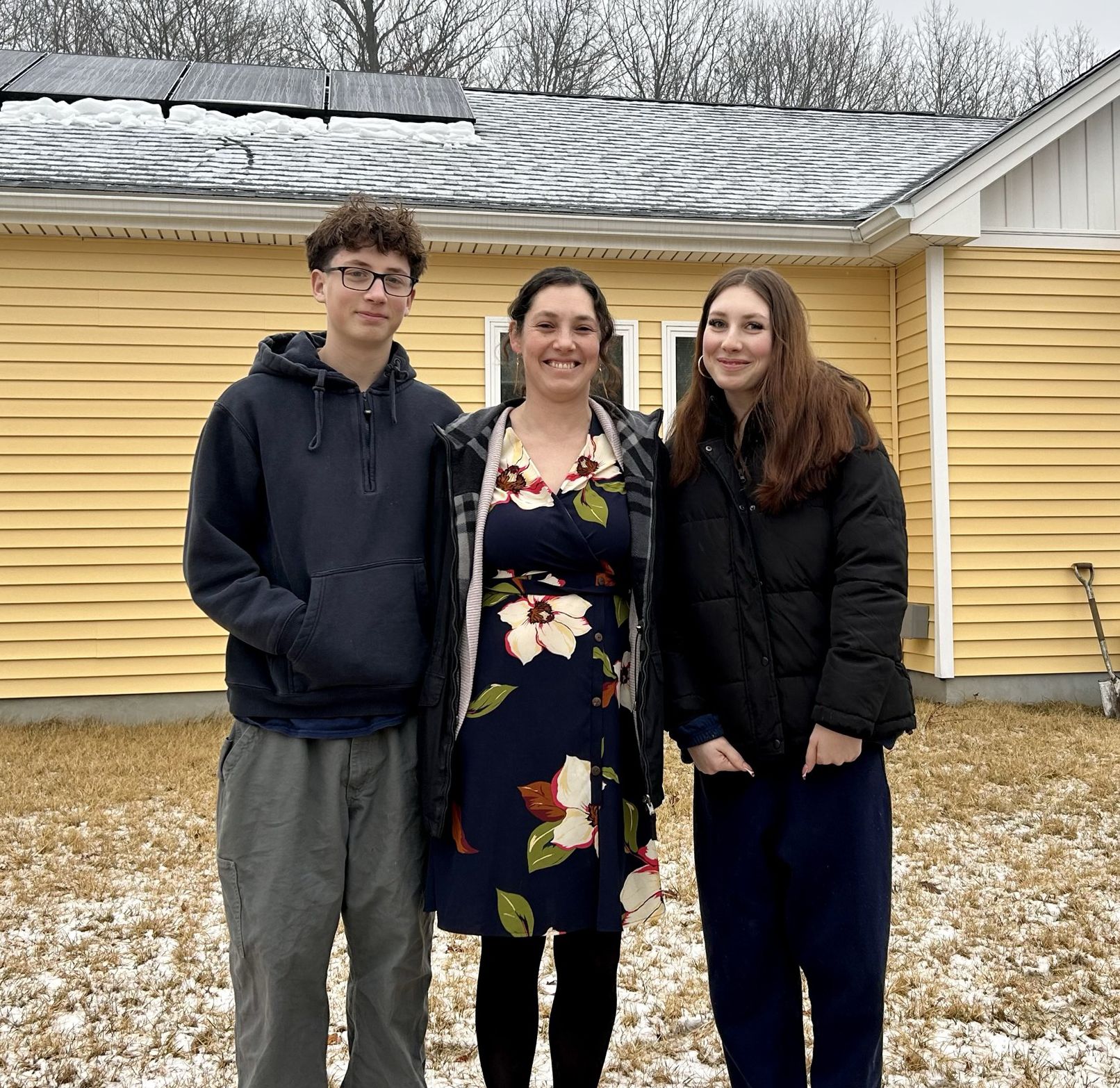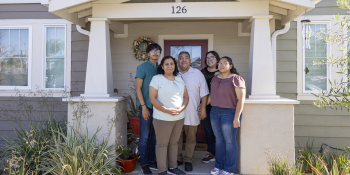Energy-efficient homes in Rhode Island

Becoming a Habitat homeowner with an affordable mortgage was already life-changing for Aliyya and her family. Becoming the owner of an energy-efficient house with solar panels brought another layer of savings and excitement. “We felt it as soon as we moved in,” Aliyya says. “We feel ready for anything.”

Aliyya built her home with South County Habitat in Hopkinton, Rhode Island, as part of the neighborhood’s first wave of energy-efficient houses. South County Habitat is scaling their impact with plans to build more affordable, sustainable homes just like hers.
Building energy-efficient, affordably
“One thing that we hear is that it’s too hard to build green. But if you build with intention, it really isn’t any more expensive or difficult to do,” says Colin Penney, South County Habitat’s executive director.
For South County Habitat, the key to energy-efficient homes resides in a few simple steps during construction. Builders tape each seam to make the house airtight, add extra insulation and build thicker walls. These features work together to reduce the energy needed to heat or cool the home. This means lower utility bills for homeowners.
“Habitat as an organization is a leader in responsible building, so this was the natural next step: building in a cost-effective way that’s environmentally friendly and more affordable for homeowners,” Colin says.
In addition to the strategic steps during construction, South County Habitat added solar panels to these homes, drastically cutting the household’s carbon footprint. Now these homes produce as much energy as they use and meet zero-energy standards.
Some months, the homes even produce more electricity than they consume. In this case, the utility company gives homeowners a credit on their bill to use during periods of higher demand, like Rhode Island’s harsh winters.
“We’re hitting the best energy standards that the best builders in the country are hitting,” Colin says.
Fellow builders are taking notice. The Rhode Island Builders Association hosts workshops across the Northeast to showcase the best in the industry, and they’re presenting these Habitat homes as a leading example of successful energy-efficient construction.
Life under the solar panels
Aliyya and her children, 15-year-old Aaron and 19-year-old Majida, enjoy all the benefits of their energy-efficient Habitat home.
The family of three used to live in a small apartment. There, Aliyya paid over US$200 a month for electricity during the winter, just for the family to still be cold. In her three-bedroom Habitat home, her electricity bill has dropped to US$0.
The utility savings have been a game-changer for Aliyya’s financial goals. She’s been able to save for emergencies, giving her huge peace of mind. She can now help her daughter with college tuition, and with her son off to college in a few years, Aliyya is proud to know she can do the same for him.
“I just feel very secure, and that stability has trickled down to my kids,” says Aliyya.
Building innovative, energy-efficient homes can be done affordably. For families like Aliyya’s, the result is greater freedom to invest in their futures.













